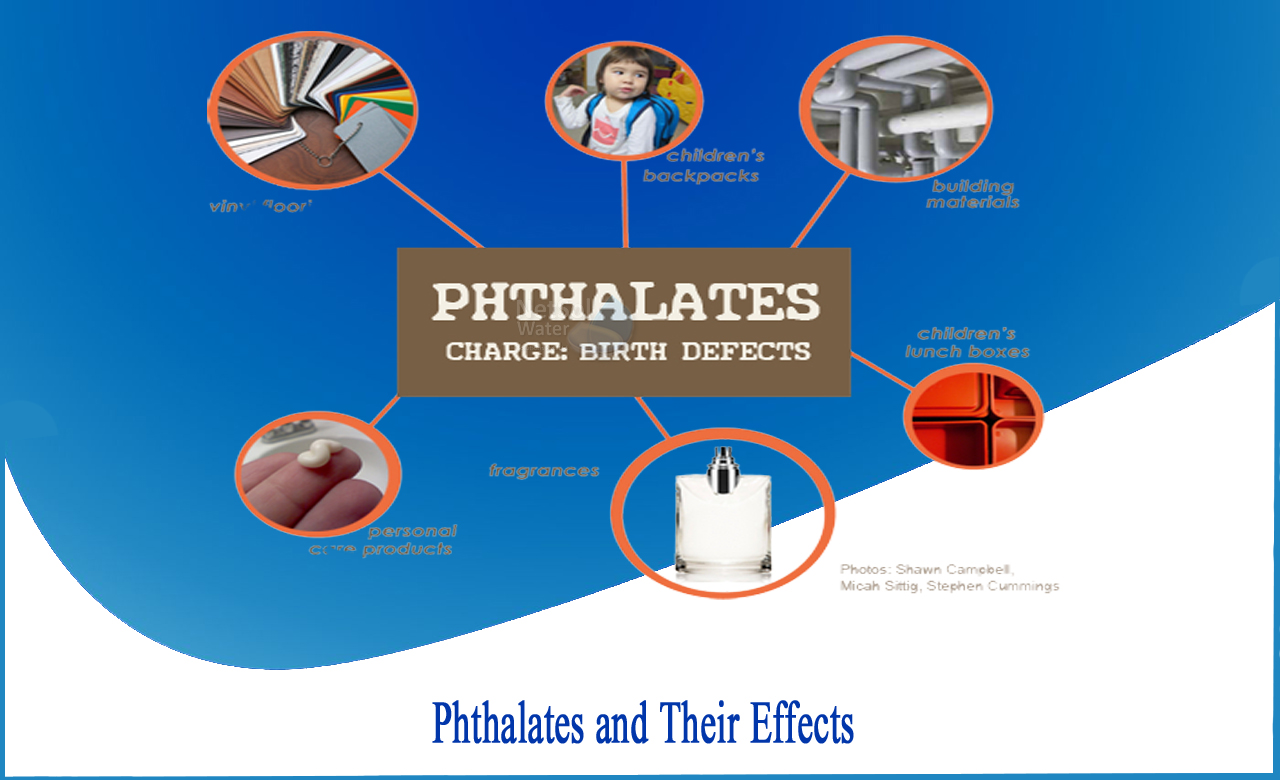What Are Phthalates?
For years, we've heard about phthalates, a mysterious, ubiquitous, and difficult-to-spell chemical molecule used to make plastics flexible and as lubricants in cosmetics.There are many types of phthalates, among them are DBP (di-n-butyl phthalate), DEP (diethyl phthalate), DEHP (di-(2-ethylhexyl) phthalate or bis (2-ethylhexyl) phthalate), BzBP (benzylbutyl phthalate), and DMP (dimethyl phthalate).
Where are phthalates found?
Phthalates are often found in plastic food and beverage containers, but they also appear in a variety of other places. In reality, roughly a billion pounds of phthalates are generated each year, and their use is so pervasive that completely avoiding them is practically impossible. In fact, phthalates can be detected in the urine of 95% of people.
Perfume, hair spray, deodorant, almost anything scented (from shampoo to air fresheners to laundry detergent), nail polish, insect repellent, carpeting, vinyl flooring, the coating on wires and cables, shower curtains, raincoats, plastic toys, and your car's steering wheel, dashboard, and gearshift all contain phthalates. Phthalates are used in medical devices to keep IV drip bags and tubes soft, but DEHP is being put directly into the bloodstream of sick patients. Phthalates can also be found in our food and drinking water. They're in dairy products, possibly from the milking cows' plastic tubing. They're found in meats and cheeses (certain phthalates are attracted to fat, so meats and cheeses have high levels, but it's unclear how they got there in the first place). Phthalates can be found in tap water contaminated by industrial waste.
What Causes Phthalates to Build Up in Your Body?
Phthalates can enter the human body through a variety of routes, including ingestion, inhalation, and skin absorption. People are exposed to phthalates when they eat or drink foods or beverages packaged with phthalates. Chemicals are frequently absorbed via the skin when personal care items are packaged in this manner.
What are the dangers of phthalates?
It's unclear how phthalates can be harmful to your health. However, there are numerous reasons to exercise caution when dealing with phthalate-containing items. They are well-known for the harm they may do to animals. In experimental animals, phthalates have been shown to induce reproductive difficulties, including early puberty, impaired hormone function, and male fertility issues. It's unclear whether they have the same effects on human men, but they almost certainly do. Phthalates can harm a child's growth and development, particularly in boys. And because young children prefer to put everything they come across in their mouths, they are more likely to be exposed to phthalates.
Beyond this, phthalates have also been linked to several serious health issues, including:
1- ADHD
2- Autism
3- Breast cancer
4- Low IQ
5- Type II diabetes, and more.
What Can You Do to Preserve Your Health?
Phthalates in drinking water may appear to be a major health risk. The good news is that there are a variety of options to safeguard yourself, some of these are:
-Take care with the things you use.
-Check for phthalates in your drinking water.
-Use a reverse osmosis water filter to remove the chemicals.
Here we are mainly concerned with the phthalates in water and the ways we can remove it. Thus, a clear wayout is presented as
1-Check for Phthalates in Your Water
You can also test your water for phthalates to discover how much exposure you're getting. The problem with this step is that because phthalates are so difficult to detect, most standard water tests do not screen for them. A phthalate test might cost hundreds and isn't always necessary. Because phthalates are so widely used, the test will almost certainly be positive.
2-Using a Reverse Osmosis Water Filter to Remove Phthalates
Investing in the appropriate water treatment equipment is the greatest solution to this problem. In this instance, a reverse osmosis system will be the most efficient solution. This is due to the fact that it drives water through a semi-permeable barrier, which traps phthalates and other toxins.
However, not just any reverse osmosis system will suffice. Netsol’s RO system has been proved to be one of the best in providing quality water, meeting all the required standards and providing safest and healthiest water, free from all toxins.
Go grab a Netsol’s RO system and safeguard your health!




